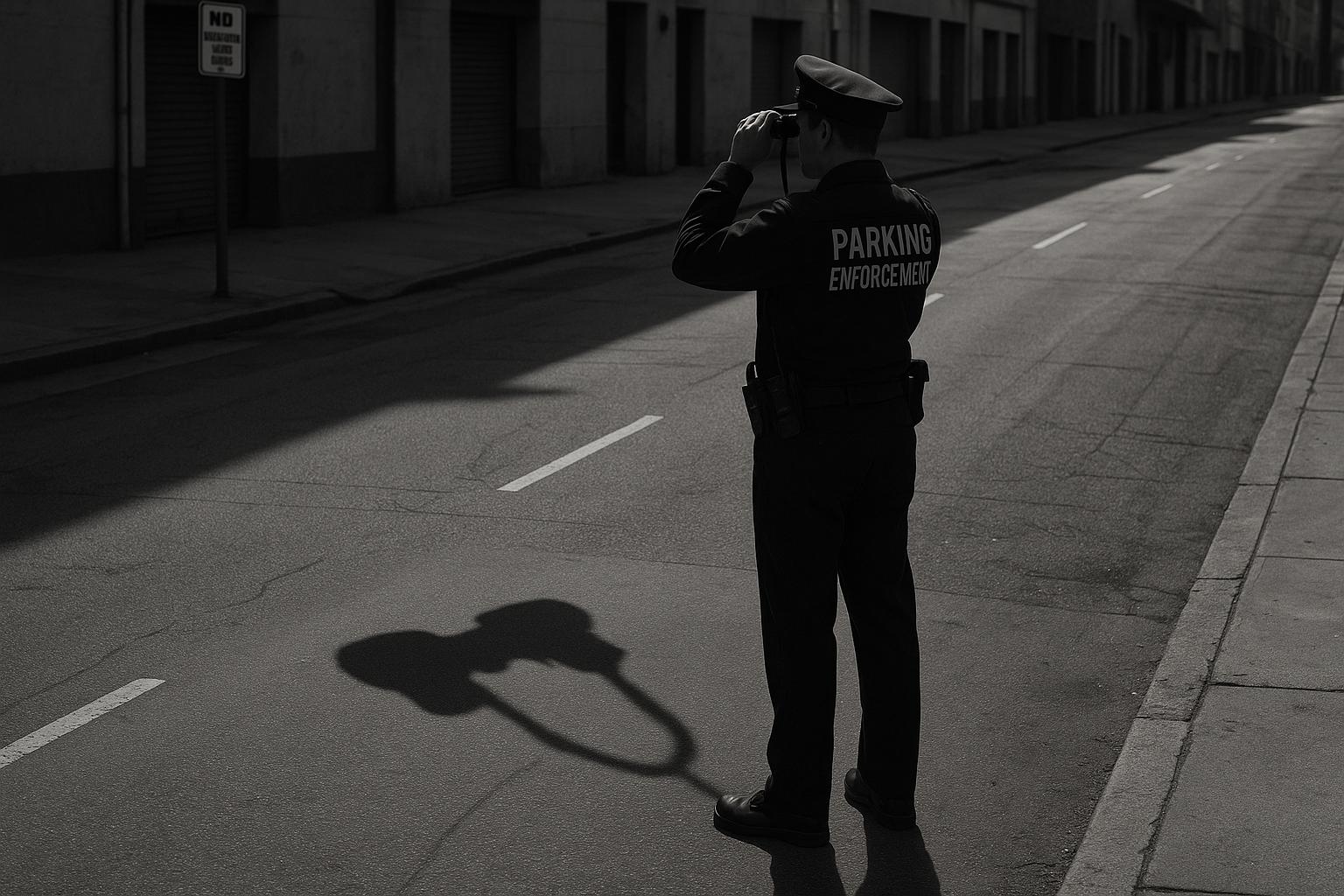UK motorists faced a staggering 1.6 million fines for illegal parking on yellow lines in 2024, exposing a persistent and systemic failure to provide practical parking options for everyday drivers. These figures, obtained through Freedom of Information requests, lay bare the heavy-handed tactics of local councils increasingly reliant on cameras and traffic wardens to enforce rigid parking restrictions—restrictions that often do little to address the underlying issues of urban congestion and limited legal parking spaces.
A significant portion of these penalty notices—over half a million—originated from just ten council areas, mainly in London, where fines can reach up to £160. Yet, across the rest of the UK, parking fines hover around £70, rising to as much as £130 in certain regions. The sheer volume of penalties highlights a punitive approach aimed more at revenue generation than solving the root problems faced by commuters. When more than half of drivers admit to parking illegally to load goods, make quick stops, or simply because no legal alternatives are available, it becomes clear that the system is fundamentally broken.
The AA’s own survey reveals that the majority of drivers see the lack of legal parking options as the primary driver behind illegal parking. Shockingly, older drivers—those most likely to be dealing with mobility issues—are more than three times as likely to park on double yellow lines, pointing to a desperate need for more considerate and accessible parking solutions. Instead of investing in infrastructure that genuinely eases congestion, councils continue to rely heavily on fines that punish drivers for circumstances beyond their control.
Prominent transport experts criticize what can only be described as enforcement overreach. “People need to know where they can park safely and legally,” said one industry insider, stressing that expanding legal parking and clarity around restrictions is a far more effective approach than increasing penalty patrols. Yet, ongoing enforcement campaigns and rising fine levels suggest a government and local authorities more interested in revenue than reform. This punitive mindset ignores the fact that clever infrastructure, combined with better signage and public education, could drastically reduce violations and improve road safety.
The broader enforcement landscape paints an even bleaker picture. London alone issued over 8.3 million penalty notices during 2023-24, a 9.7% rise from the previous year. Parking fines and other traffic violations are escalating as authorities attempt to meet rising urban congestion head-on—yet the approach remains solely punitive rather than progressive or solutions-focused.
Meanwhile, the private parking industry is experiencing unprecedented growth, warning that over 14.5 million notices could be issued this year as firms capitalize on the punitive climate fostered by lax regulation and a lack of meaningful oversight. Over 7 million requests for vehicle keeper details have already been made to the DVLA in just six months—a further indication of the industry's hunger for revenue rather than fair practice. Calls for government intervention and the introduction of a legitimate code of practice are desperately needed to curb abuses and protect drivers from unfair penalties.
Officials acknowledge the challenges but refuse to act decisively. A spokesperson from the Local Government Association admits that parking fines have not been reviewed since 2008, despite a doubling in vehicle numbers and sizes. The Department for Transport admits that enforcement remains primarily about encouraging proper parking habits but remains silent on the need for radical reform. Their claims that penalty charges should “encourage drivers to park the right way, not to catch them out” ring hollow in the face of mounting fines and a punitive enforcement regime that does little to address the practical realities faced by everyday drivers.
As it stands, the current approach fosters frustration and resentment among motorists—particularly those on lower incomes or with mobility challenges—while local councils and private firms profit from their plight. Instead of doubling down on fines, authorities should prioritize expanding legal parking spaces, simplifying signage, and adopting fairer, more effective enforcement policies.
The mounting penalty figures serve as a stark reminder that the existing system is both outdated and unjust. Urgent reform is needed to shift the focus from revenue collection to relieving congestion, improving accessibility, and creating a fairer, more rational approach to parking that truly serves the needs of drivers, not just the coffers of local authorities and private firms. Without meaningful action, the cycle of fines and frustration will only deepen, leaving many drivers feeling like they are being penalized for a system that no longer works for them.
Source: Noah Wire Services
